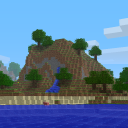

Odin
When I read the problem description I expected the input to also be 2 digit numbers. When I looked at it I just had to say “huh.”
Second part I think you definitely have to do in reverse (edit: if you are doing a linear search for the answer), as that allows you to nope out as soon as you find a match, whereas with doing it forward you have to keep checking just in case.
package day5
import "core:fmt"
import "core:strings"
import "core:slice"
import "core:strconv"
Range :: struct {
dest: int,
src: int,
range: int,
}
Mapper :: struct {
ranges: []Range,
}
parse_range :: proc(s: string) -> (ret: Range) {
rest := s
parseLen := -1
destOk: bool
ret.dest, destOk = strconv.parse_int(rest, 10, &parseLen)
rest = strings.trim_left_space(rest[parseLen:])
srcOk: bool
ret.src, srcOk = strconv.parse_int(rest, 10, &parseLen)
rest = strings.trim_left_space(rest[parseLen:])
rangeOk: bool
ret.range, rangeOk = strconv.parse_int(rest, 10, &parseLen)
return
}
parse_mapper :: proc(ss: []string) -> (ret: Mapper) {
ret.ranges = make([]Range, len(ss)-1)
for s, i in ss[1:] {
ret.ranges[i] = parse_range(s)
}
return
}
parse_mappers :: proc(ss: []string) -> []Mapper {
mapsStr := make([dynamic][]string)
defer delete(mapsStr)
restOfLines := ss
isLineEmpty :: proc(s: string)->bool {return len(s)==0}
for i, found := slice.linear_search_proc(restOfLines, isLineEmpty);
found;
i, found = slice.linear_search_proc(restOfLines, isLineEmpty) {
append(&mapsStr, restOfLines[:i])
restOfLines = restOfLines[i+1:]
}
append(&mapsStr, restOfLines[:])
return slice.mapper(mapsStr[1:], parse_mapper)
}
apply_mapper :: proc(mapper: Mapper, num: int) -> int {
for r in mapper.ranges {
if num >= r.src && num - r.src < r.range do return num - r.src + r.dest
}
return num
}
p1 :: proc(input: []string) {
maps := parse_mappers(input)
defer {
for m in maps do delete(m.ranges)
delete(maps)
}
restSeeds := input[0][len("seeds: "):]
min := 0x7fffffff
for len(restSeeds) > 0 {
seedLen := -1
seed, seedOk := strconv.parse_int(restSeeds, 10, &seedLen)
restSeeds = strings.trim_left_space(restSeeds[seedLen:])
fmt.print(seed)
for m in maps {
seed = apply_mapper(m, seed)
fmt.print(" ->", seed)
}
fmt.println()
if seed < min do min = seed
}
fmt.println(min)
}
apply_mapper_reverse :: proc(mapper: Mapper, num: int) -> int {
for r in mapper.ranges {
if num >= r.dest && num - r.dest < r.range do return num - r.dest + r.src
}
return num
}
p2 :: proc(input: []string) {
SeedRange :: struct {
start: int,
len: int,
}
seeds := make([dynamic]SeedRange)
restSeeds := input[0][len("seeds: "):]
for len(restSeeds) > 0 {
seedLen := -1
seedS, seedSOk := strconv.parse_int(restSeeds, 10, &seedLen)
restSeeds = strings.trim_left_space(restSeeds[seedLen:])
seedL, seedLOk := strconv.parse_int(restSeeds, 10, &seedLen)
restSeeds = strings.trim_left_space(restSeeds[seedLen:])
append(&seeds, SeedRange{seedS, seedL})
}
maps := parse_mappers(input)
defer {
for m in maps do delete(m.ranges)
delete(maps)
}
for i := 0; true; i += 1 {
rseed := i
#reverse for m in maps {
rseed = apply_mapper_reverse(m, rseed)
}
found := false
for sr in seeds {
if rseed >= sr.start && rseed < sr.start + sr.len {
found = true
break
}
}
if found {
fmt.println(i)
break
}
}
}













I have mine set up with a bunch of categories that are sorted with a prepended 3-digit number. Allows me to have different sections of category without it getting mixed up. ex:
010 S 011 A+ 012 A 013 A- 014 B+ etc... 350 plz play soon 355 wont play ... 800 dont remember buying this